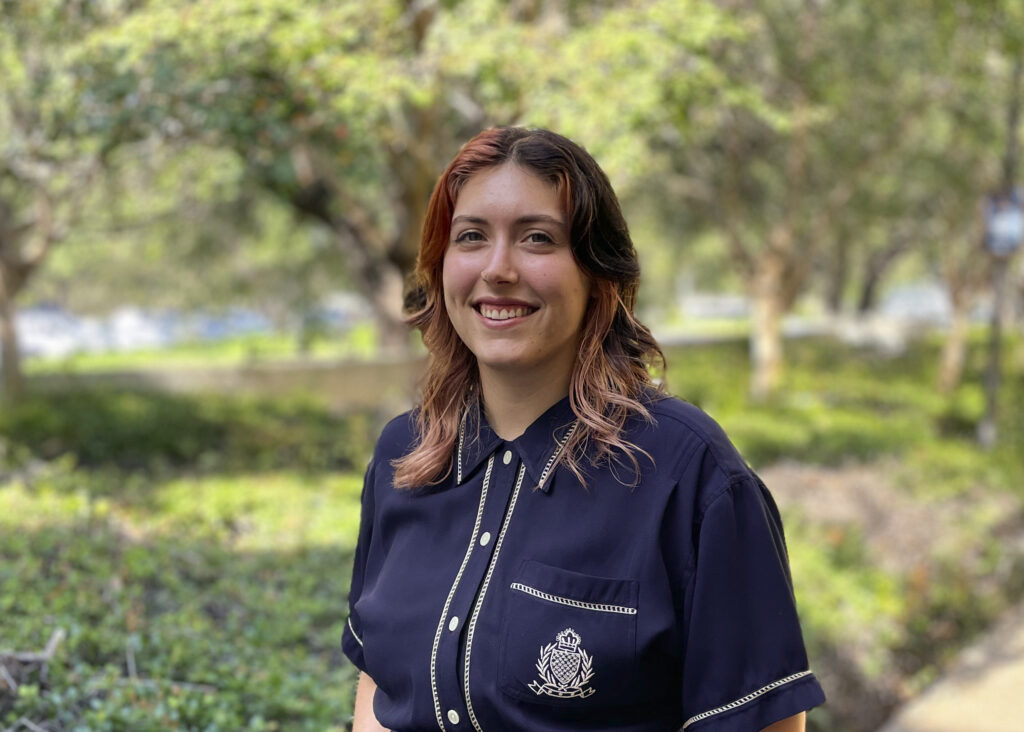Cassie Geiken ’22 has joined the Justice Center and Mithoff Pro Bono Program as a full-time fellow with the Parole Project, which assists women who are incarcerated by the Texas Department of Criminal Justice in their efforts to obtain parole. Working with Justice Center senior research attorney Helen Gaebler, Geiken will help supervise student volunteers and work to further expand the Project’s reach, including working with advocates and service providers to help identify and connect resources that support individuals returning home following incarceration. The two-year fellowship is made possible through a generous private donation to the Justice Center.
As a student, Geiken served as a Mithoff Program Pro Bono Scholar for two years with the Parole Project and also volunteered for the Expunction Project, DACA renewal clinics, and the Bexar County Public Defender’s Office as part of Pro Bono in January. She participated in the Civil Rights Clinic, Actual Innocence Clinic, and Human Rights Clinic. “The work I did on pro bono projects while in law school, especially on the Parole Project, helped me figure out who I wanted to be as an attorney,” said Geiken. “I learned how to be an effective advocate and developed confidence in my ability to do this kind of work. I am excited to help facilitate that same type of growth for students who volunteer for the Project.”
Since 2018, the Parole Project’s teams of pro bono students supervised by Gaebler have won approximately 75% of their 44 cases, sparing the women decades of incarceration. Now starting its fifth year, the Project continues to expand, with plans to assist 24 women and involve almost 70 students this year. With the addition of Geiken, the Project will also offer training and technical assistance on parole packet preparation to other Texas law schools, impacted families, and criminal legal system reform advocates around the state.
“An important goal of the fellowship is to expand access to parole representation and increase Texas’ historically low parole approval rates. The Project’s overwhelming success tells us that when provided a more holistic picture, including details regarding an individual’s past history and their plans for successful reentry, the Texas Board of Pardons and Paroles is ready to do the right thing and permit individuals to serve their sentences at home with their families and in their communities,” said Gaebler. “Expanding access to parole representation has many upsides. For attorneys, preparing clients for parole hearings combines legal work and social work in a way that offers a unique and gratifying pro bono experience. Moreover, increasing the number of individuals released to community supervision benefits the State of Texas and the families who are waiting to welcome loved ones home.”

